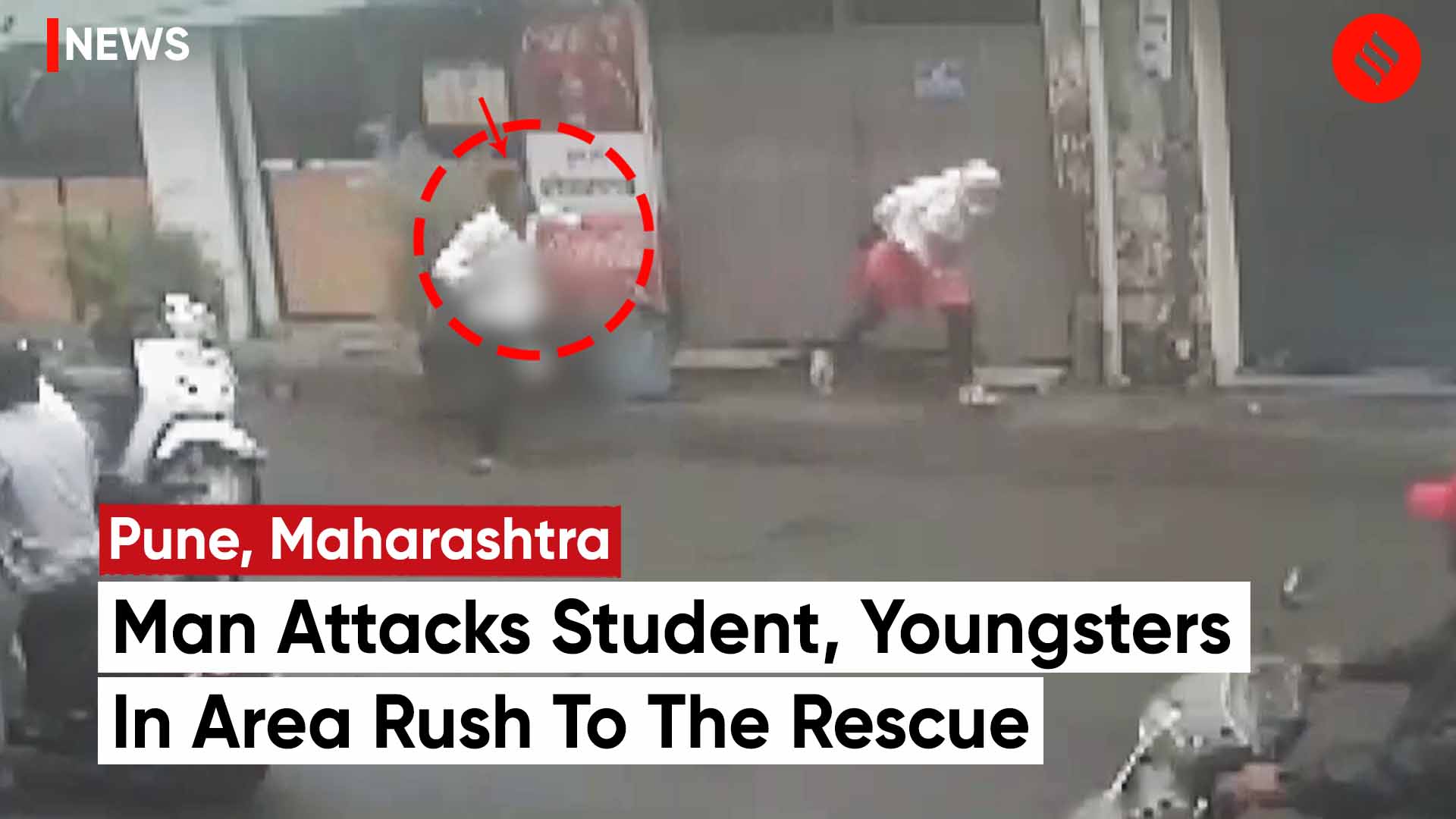The tragic incident involving a Pune girl hangs has sent shockwaves across India, sparking debates on mental health, societal pressures, and the need for systemic change. This incident has become a focal point for discussions about the challenges faced by young individuals in modern society. It serves as a reminder of the urgent need for awareness, support, and action to prevent such tragedies in the future.
In recent years, the city of Pune has witnessed several high-profile cases that highlight the growing mental health crisis among young people. These incidents underscore the importance of understanding the root causes and addressing them effectively. As we delve into this sensitive topic, it is crucial to approach it with empathy, respect, and a commitment to finding solutions.
This article aims to provide an in-depth analysis of the Pune girl hangs incident, exploring the factors that contributed to it, the societal implications, and the steps that can be taken to prevent similar tragedies. By examining the broader context, we hope to shed light on the importance of mental health awareness and support systems.
Read also:Comprehensive Guide To Loflin Funeral Ramseur Services History And Expertise
Table of Contents
- Background of the Incident
- Biography of the Victim
- Mental Health Challenges
- Societal Pressures and Expectations
- Legal Aspects and Procedures
- Community Response and Initiatives
- Preventive Measures and Support Systems
- Media Coverage and Public Perception
- Global Perspective on Suicide Prevention
- Conclusion and Call to Action
Background of the Incident
The Pune girl hangs incident gained widespread attention due to its tragic nature and the circumstances surrounding it. On [Date], a young woman from Pune took her own life, leaving behind a community in mourning and prompting a national conversation on mental health. The incident was reported by local authorities, who highlighted the urgent need for intervention and support systems for vulnerable individuals.
According to reports, the victim was a student at a prominent institution in Pune, known for its rigorous academic standards and competitive environment. This aspect of her life has raised questions about the pressure placed on young people to excel academically, often at the expense of their mental well-being.
Understanding the Tragedy
To fully comprehend the significance of the Pune girl hangs incident, it is essential to examine the broader context in which it occurred. Factors such as academic stress, financial pressures, and social expectations all played a role in the victim's decision. By analyzing these elements, we can identify potential areas for intervention and support.
Biography of the Victim
Before delving deeper into the incident, it is important to understand the life and background of the victim. Below is a brief biography and biodata of the Pune girl:
Biodata
| Name | [Victim's Name] |
|---|---|
| Age | [Victim's Age] |
| Education | [Victim's Educational Background] |
| Occupation | [Victim's Occupation or Field of Study] |
| Hobbies | [Victim's Hobbies or Interests] |
[Victim's Name] was a bright and ambitious individual who excelled in her studies and extracurricular activities. Her peers and teachers remember her as a dedicated and compassionate person who cared deeply about the well-being of others. However, the pressures of modern life ultimately took a toll on her mental health.
Mental Health Challenges
The Pune girl hangs incident highlights the critical issue of mental health among young people. According to the World Health Organization (WHO), depression and anxiety are among the leading causes of disability worldwide, affecting millions of individuals, particularly those in the 15-29 age group.
Read also:Jennifer Tilly Hot A Comprehensive Look At The Iconic Actress
In India, mental health remains a stigmatized topic, with many people reluctant to seek help due to societal taboos. This reluctance often leads to untreated mental health conditions, which can escalate into crises like the one witnessed in Pune.
Signs and Symptoms
- Persistent feelings of sadness or hopelessness
- Loss of interest in activities once enjoyed
- Difficulty concentrating or making decisions
- Changes in appetite or sleep patterns
- Withdrawal from friends and family
Societal Pressures and Expectations
Societal pressures play a significant role in the mental health struggles faced by young people today. In India, there is immense pressure to succeed academically, professionally, and socially. These expectations can be overwhelming, particularly for individuals who feel unable to meet them.
Research conducted by the National Institute of Mental Health and Neurosciences (NIMHANS) indicates that students in urban areas like Pune face unique challenges, including high academic standards, competitive environments, and limited access to mental health resources.
Addressing Societal Expectations
Efforts to address societal pressures must involve a multi-faceted approach, including education, awareness campaigns, and policy changes. By fostering an environment that prioritizes mental well-being, we can reduce the stigma associated with mental health issues and encourage individuals to seek help when needed.
Legal Aspects and Procedures
The Pune girl hangs incident also raises important legal questions, particularly regarding the reporting and handling of such cases. Under Indian law, suicide is no longer a criminal offense, as per the Mental Healthcare Act of 2017. This change reflects a growing recognition of the need for compassionate and supportive approaches to mental health crises.
However, there is still much work to be done in terms of implementing these laws effectively and ensuring that individuals receive the care and support they need. Legal frameworks must be complemented by robust mental health services and community-based initiatives.
Community Response and Initiatives
In the aftermath of the Pune girl hangs incident, the community has come together to support the victim's family and raise awareness about mental health. Local organizations, schools, and colleges have launched initiatives aimed at promoting mental well-being and providing resources for those in need.
One such initiative is the establishment of a 24/7 helpline, offering confidential support and counseling services to individuals struggling with mental health issues. These efforts demonstrate the power of community-driven solutions in addressing complex challenges like suicide prevention.
Preventive Measures and Support Systems
Preventing tragedies like the Pune girl hangs incident requires a proactive and comprehensive approach. This includes implementing preventive measures at the individual, community, and systemic levels. Some key strategies include:
- Providing access to affordable mental health services
- Encouraging open conversations about mental health
- Training educators and community leaders to recognize warning signs
- Developing school-based programs to promote emotional resilience
- Creating safe spaces for individuals to share their experiences
Building Resilience
Building resilience is a crucial aspect of mental health prevention. By equipping individuals with coping strategies and problem-solving skills, we can help them navigate life's challenges more effectively. This approach not only reduces the risk of suicide but also promotes overall well-being and quality of life.
Media Coverage and Public Perception
The media plays a vital role in shaping public perception of mental health issues. In the case of the Pune girl hangs incident, media coverage has been both a source of awareness and a potential source of harm. Responsible journalism is essential to ensure that stories are reported accurately and sensitively, without sensationalizing or stigmatizing the victims.
Organizations like the International Association for Suicide Prevention (IASP) provide guidelines for responsible media reporting on suicide, emphasizing the importance of using non-judgmental language and avoiding detailed descriptions of methods.
Global Perspective on Suicide Prevention
While the Pune girl hangs incident is specific to India, it reflects a global trend in rising suicide rates among young people. According to the WHO, suicide is the fourth leading cause of death among individuals aged 15-29 worldwide. This statistic underscores the need for international collaboration and knowledge-sharing in suicide prevention efforts.
Countries like Australia, Canada, and the United States have implemented successful suicide prevention programs that focus on early intervention, community engagement, and policy reform. By learning from these models, India can develop its own strategies tailored to the unique needs of its population.
Conclusion and Call to Action
The Pune girl hangs incident serves as a poignant reminder of the urgent need for action on mental health. By addressing the root causes of mental health crises and implementing effective prevention strategies, we can create a society that values and supports the well-being of all its members.
We urge readers to take action by:
- Sharing this article to raise awareness about mental health
- Reaching out to friends and family who may be struggling
- Supporting organizations working on mental health initiatives
- Advocating for policy changes that prioritize mental health
Together, we can make a difference and prevent future tragedies like the Pune girl hangs incident. Let us commit to building a world where mental health is treated with the same importance as physical health, and where every individual feels valued and supported.


